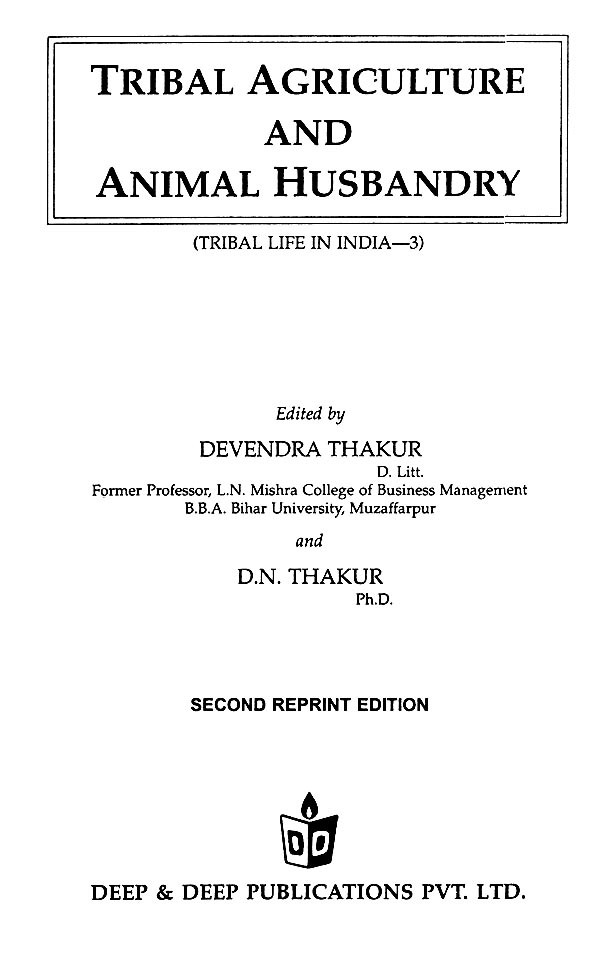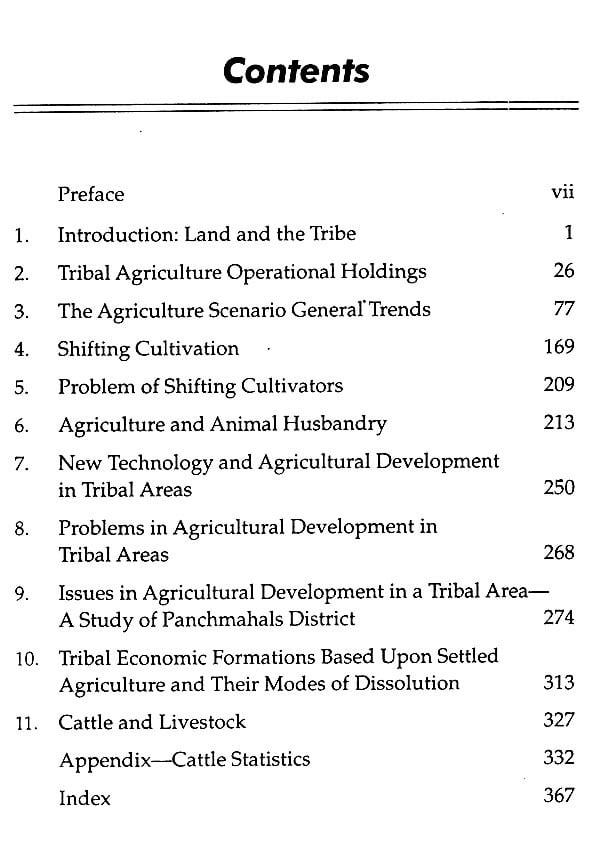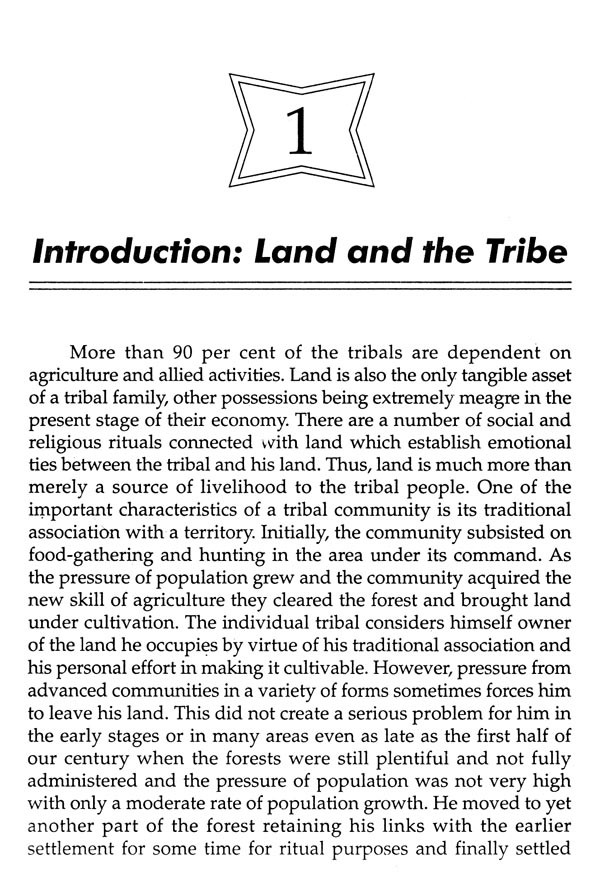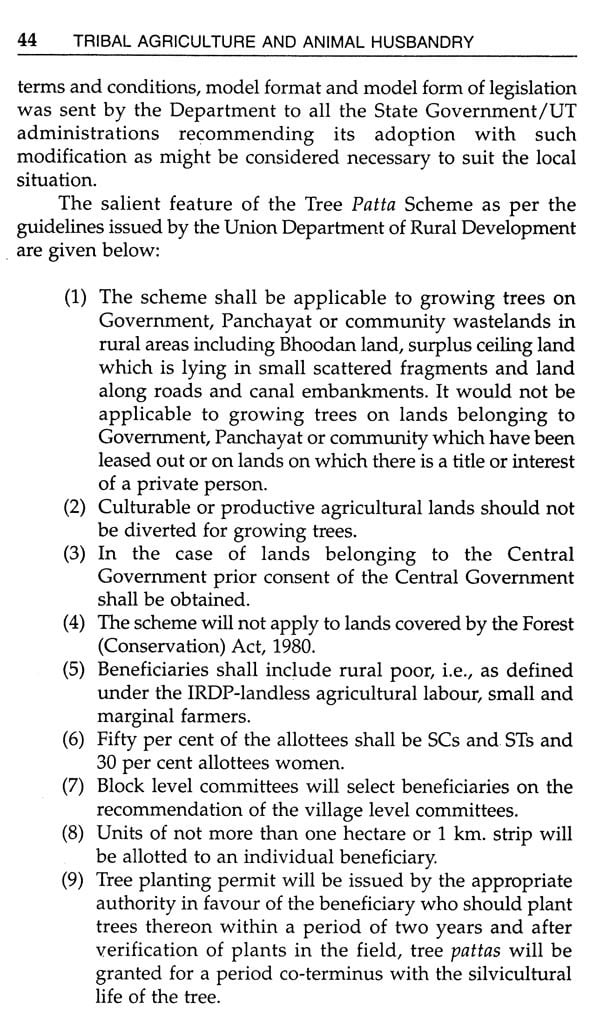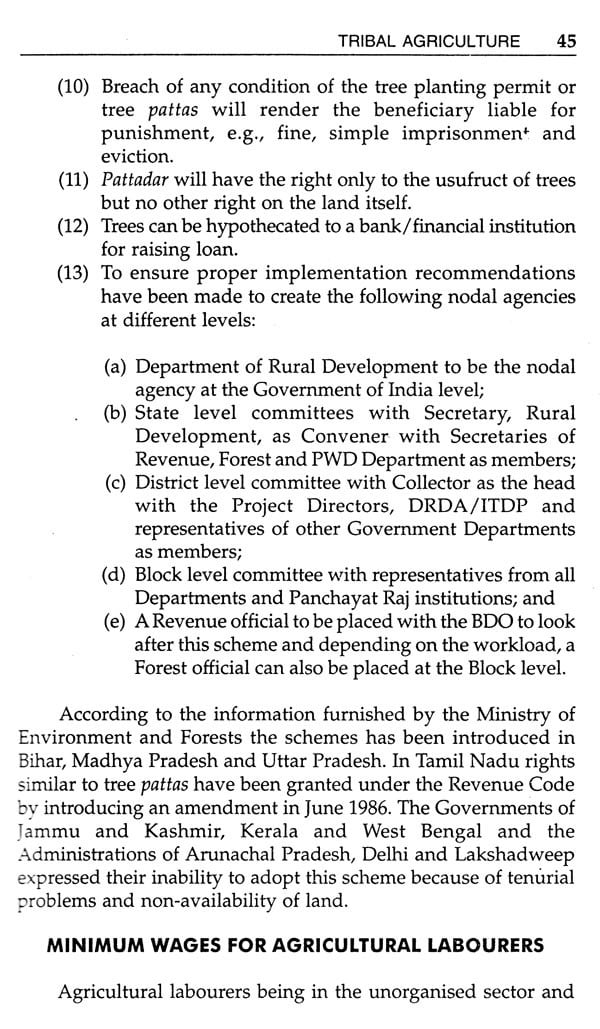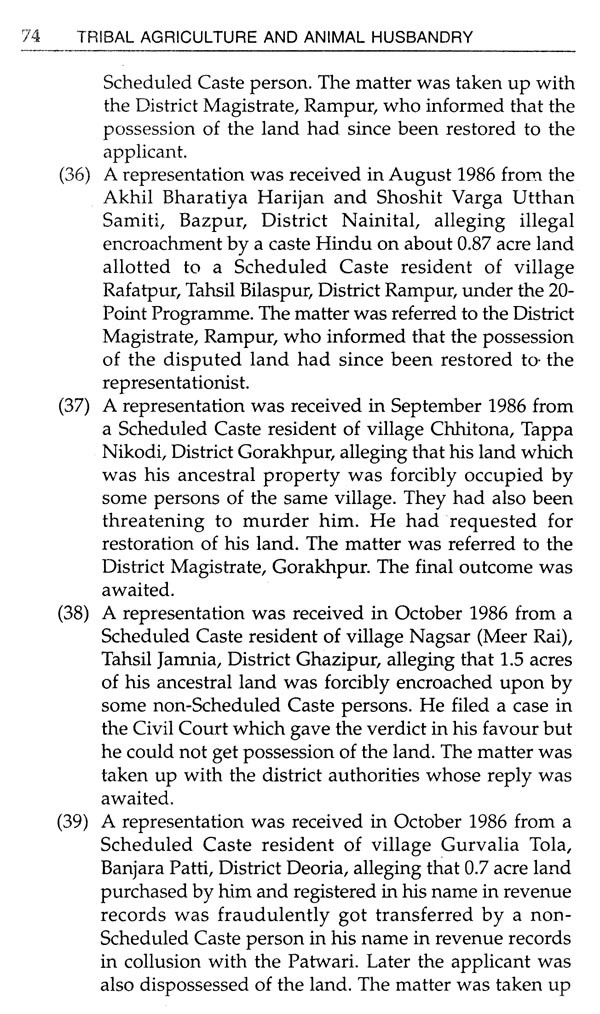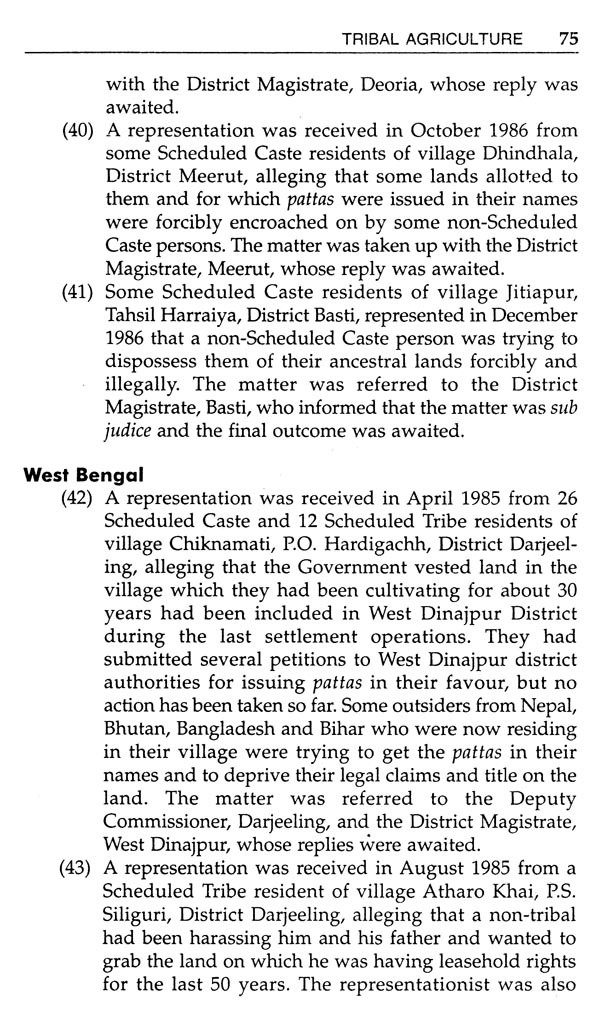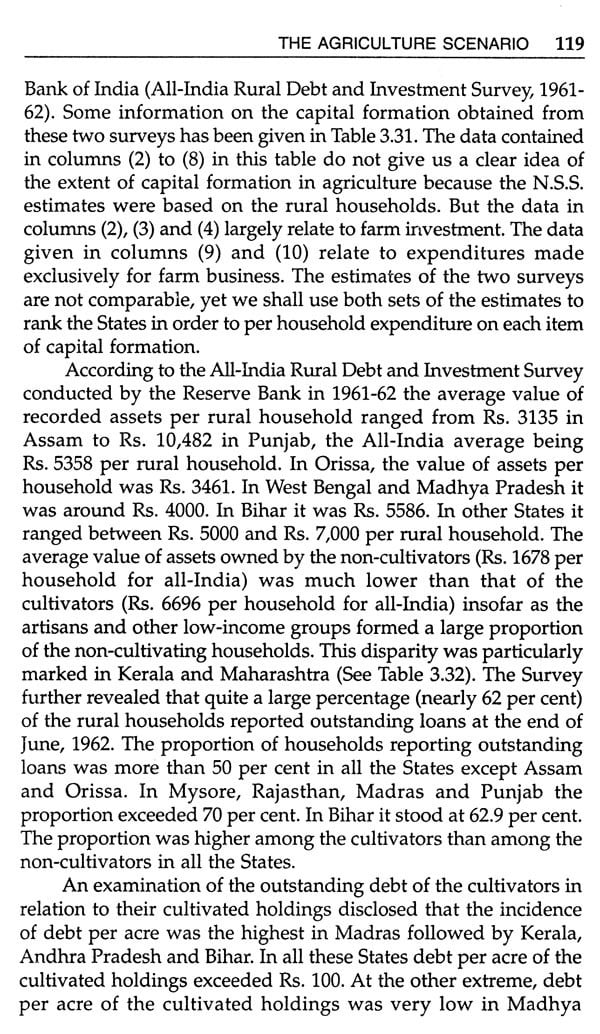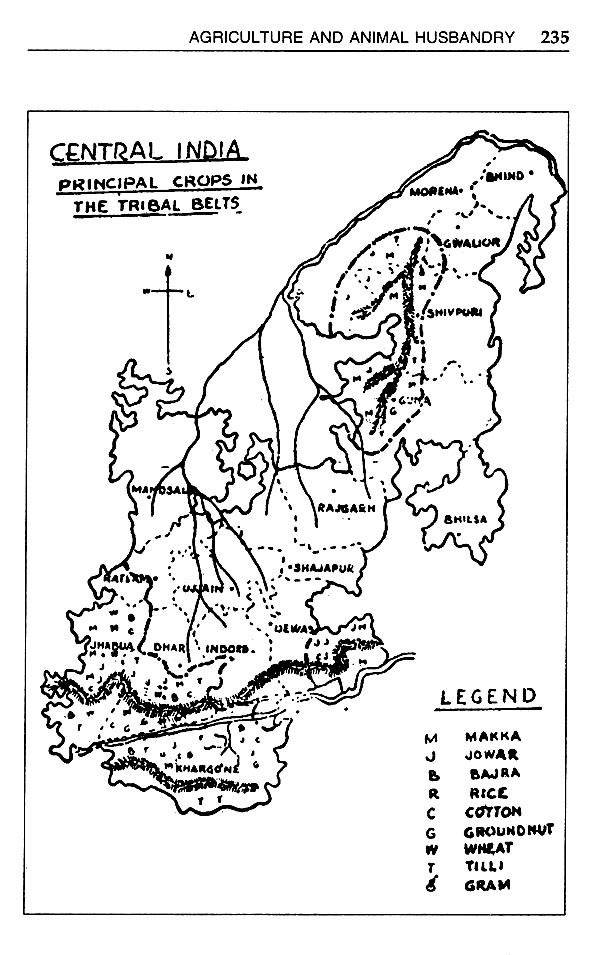
Tribal Agriculture and Animal Husbandry (Tribal Life in India) (Volume-3)
Book Specification
| Item Code: | UBC598 |
| Author: | Devendra Thakur & D.N. Thakur |
| Publisher: | Deep & Deep Publications P Ltd |
| Language: | English |
| Edition: | 2009 |
| ISBN: | 9788184501063 |
| Pages: | 378 |
| Cover: | HARDCOVER |
| Other Details | 9.00 X 6.00 inch |
| Weight | 610 gm |
Book Description
India is primarily the land of agriculture and the tribal people being the original inhabitants of this land are not only closely related to agriculture, but they depend almost totally on cultivation. There are a number of special and religious rituals connected with agriculture which explicitly disclose their emotional relation with land and crops in addition to plants, trees and animals.
In ancient times, food gathering and hunting were the chief sources of the livelihood of the tribal community. But, in course of time, as a result of pressure of population, they acquired the skill of agriculture. They cleared the forests and brought land under cultivation. They consider themselves to be the original owners of the land they cultivate. But the advanced people from outside forced them in many ways to leave the land which created serious problems and Government had to make certain rules relating to the tribal ownership of land. Tribal life is chiefly based on agriculture and closely associated with animal husbandry.
This book studies in depth the tribal agriculture and animal husbandry and their association with tribal life. Also studied is the introduction of new agricultural technology in the tribal areas.
Dr. Devendra Thakur (b. 1939), D.Litt., was formerly Professor in L.N. Mishra College of Business Management, P.G. Deptt., B.B.A. Bihar University, Muzaffarpur. He was Ex-Member, Bihar College Service Commission. He has taught Economics, Co-operation and Extension in the Rural Institute of Higher Studies, Birauli for more than a decade. He completed his Ph.D. in 1970 and D.Litt. in 1989. He was awarded post-Doctoral fellowship by the Ministry of Home Affairs, Government of India to study problems relating to Tribals.
He visited Naples, Italy, on Italian Government. Scholarship to study plan implementation course. A number of articles written by him on Socio- Economic and Political problems have been published in reputed journals of and also dozens of talks have been broadcast by him from A.I.R., Patna. He is also author of a number of outstanding books.
Dr. D.N. Thakur is M.A. in Hindi, English, Prakrit and Jainology and Ph.D. on the subject "Trends of Traditions of Indian Semantics". He has been a dedicated teacher and always endeavoured to explore new areas of study in different fields of knowledge including socio-economic development of Indian Tribes. Moreover, Dr. Thakur has assisted a lot of South-East Asian research scholars in fulfilment of their works on different subjects. He is still devoted to serve humanity through his writings.
India is primarily the land of agriculture and the tribal people being the original inhabitants of this land are not only closely related to agriculture, but they depend almost totally on cultivation. There are a number of social and religious rituals connected with agriculture which explicitly disclose their emotional relation with land and crops in addition to plants and trees.
In ancient time, food gathering and hunting were the chief sources of the livelihood of the tribal community. But, in course of time, as a result of pressure of population, they acquired the skill of agriculture. They cleared the forest and brought land under cultivation. So they consider themselves to be the original owners of the land they cultivate. But the advanced people from outside forced them in many ways to leave the land which created serious problems and Government had to make certain rules relating to the tribal ownership of land. All these facts reveal that the tribal life is chiefly based on agriculture.
Tribal agriculture is closely associated with animal husbandry because it is primarily primitive in nature.
In preparing this volume, we have tried to associate tribal agriculture with animal husbandry. The study starts with land and the tribes and further deals with tribal agriculture and allied sectors. Shifting cultivation is the significant part of the tribal agriculture. It has, therefore, been included in this work. Endeavours have been made to introduce new agricultural technology in the tribal areas. So this aspect has also been a part of this study.
**Contents and Sample Pages**
